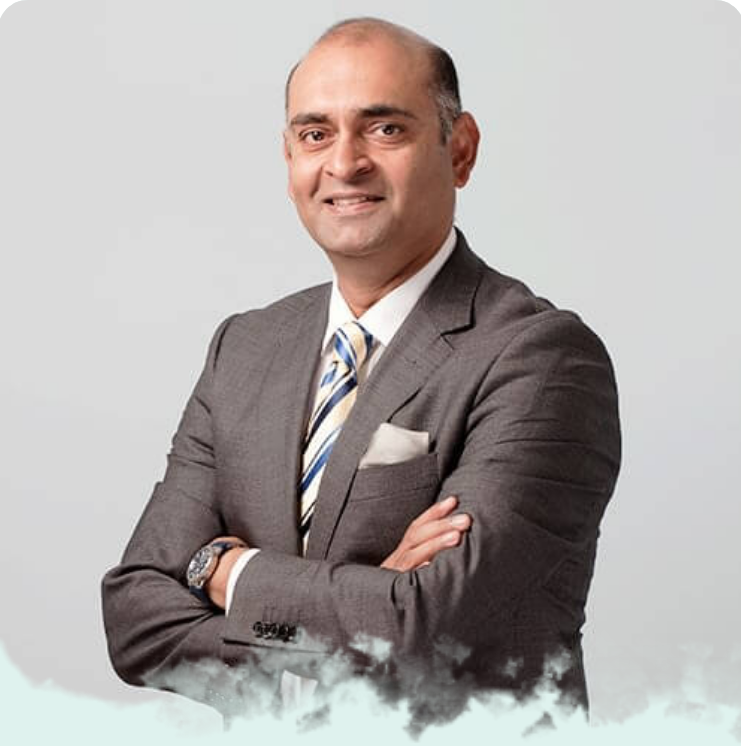
Renuka Joshi
International Modern Hospital
Dr. Renuka Joshi specializes in diagnosing diseases through the examination of tissues and cells.

Sharmina Saleem
Aster DM Healthcare
Dr. Sharmina Saleem offers expert analysis in identifying the causes and progression of diseases.

Marlon O. Pereira
JTS Medical Centre
Dr. Marlon O. Pereira brings extensive experience in pathology to ensure accurate and reliable diagnoses.
The Intricate World of a Pathologist
Beneath the surface where the truth hides in cells and tissues, pathologists navigate a hidden, complex world. It is here where every microscopic detail can unveil mysteries of life and death.
The Path to Pathology
Becoming a pathologist means years of intensive study. Medical school lays the foundation, but pathology requires specialized training and dedication. Each slide under the microscope tells a story, waiting to be deciphered by the trained eye.
Unseen Diagnoses
Unlike other specialties, pathologists often remain behind the scenes. Their work, crucial but silent, revolves around diagnosing diseases from tissue samples and biopsies. The whispers of illnesses echo in blood smears and cell structures, where precision is key.
The Intersection of Technology and Expertise
Modern pathology is a blend of technology and expertise. Advanced imaging techniques, molecular diagnostics—these tools enhance capabilities but never replace the keen judgment of a skilled pathologist. The human brain, intuitively analyzing patterns, remains at the core of diagnostics.
Cultural Nuances in Pathology
Working in culturally diverse settings, like Dubai, pathologists encounter various medical conditions influenced by genetic and environmental factors. Understanding these nuances is essential for accurate diagnoses. Each patient’s background weaves into their medical story.
Microscopic Mysteries
Peering through the microscope, pathologists face a world of detail. Cancer cells with rogue characteristics, infectious organisms hiding within tissues. Every slide is a new puzzle. Identifying patterns, anomalies, it’s a relentless pursuit of truth.
Emotional Resonances
Though distance from patients, pathologists feel the weight of each diagnosis. Knowing their findings will impact lives, guide treatments, affects them. The gravity of their work often leads to silent reflections amidst the lab’s solitude. The lab becomes a sanctum of silent responsibility.
Artistry in Diagnostics
Pathology is an art as much as a science. Recognizing cellular patterns, distinguishing subtle differences. It requires a harmonious blend of intuition and rigorous analysis. Each diagnosis is a masterpiece of careful consideration.
Advances in Molecular Pathology
The rise of molecular pathology has transformed the specialty. Genetic testing, identification of molecular markers, these advances open new pathways for targeted therapies. The field is ever-evolving, requiring pathologists to constantly update their knowledge base.
Collaboration with Clinicians
Pathologists work closely with other medical specialists. Their reports guide surgical decisions, cancer treatments, infectious disease management. Multidisciplinary teams rely on the precise information pathologists provide, making every microscopic detail significant.
Pediatric Pathology
In pediatric pathology, the stakes feel even higher. Diagnosing rare childhood diseases, congenital anomalies, infections. Each case demands a precise and sensitive approach. Understanding the unique aspects of childhood diseases adds another layer of complexity.
Forensic Pathology’s Stark Realities
Forensic pathologists face the grim task of uncovering truths behind deaths. Autopsies reveal hidden stories, causes of untimely deaths. It’s a field marked by the stark realities of mortality, blending medical investigation with a touch of detective work.
Chronic Disease Management
Chronic diseases reflect through repetitive tissue changes. Pathologists monitor these over time, guiding long-term management. Each biopsy adds a chapter to the patient’s medical history, requiring meticulous documentation and longitudinal understanding.
The Human Side of Pathology
Despite minimal patient contact, pathologists deeply impact lives. Their findings shape treatment paths, bring clarity to medical mysteries. The human element lies in the conscientious attention to each slide, the knowledge that behind every specimen is a human story.
Reflection and Growth
Pathologists engage in ongoing reflection. It’s vital to review past cases, learn from every detail. This reflective practice fosters professional growth, sharpens diagnostic skills, and ensures the continuous pursuit of excellence.
Community and Education
Pathologists also play an educational role. Teaching medical students, training residents, sharing advancements in pathology. They contribute to the broader medical community by spreading knowledge, enhancing collective expertise.
Technology: A Double-Edged Sword
Advanced technology aids in diagnosis, yet it presents a challenge. Balancing technological prowess with human expertise is crucial. Reliable machines cannot replace the nuanced interpretation of a seasoned pathologist. The fusion of both leads to optimal outcomes.
The Importance of Mentorship
In pathology, mentorship is key. Experienced pathologists guide newcomers, sharing insights and methodologies. This mentorship ensures the continuation of excellence, passing down the legacy of detailed, careful diagnostic work.
The Silent Pillars
Pathologists are the silent pillars of medicine. Their work, unseen by most, supports every aspect of patient care. The silent dedication, precision, and artistry within the pathology lab. It’s the backbone of accurate diagnosis and effective treatment plans.
Palliative Care
Would you also like to access information about Palliative Care? Palliative Care is the branch of medicine that focuses on providing relief from the symptoms and stress of serious illnesses, aiming to improve the quality of life for patients and their families through comprehensive support, pain management, and emotional care during challenging times.
Palliative Care